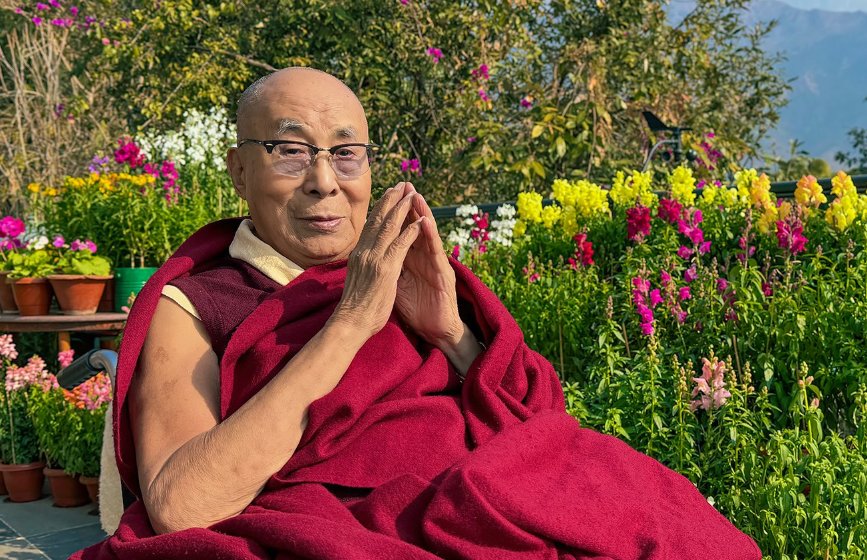
The issue of the Dalai Lama’s successor has once again taken center stage, with China renewing its efforts to control the process. The debate was reignited after the current Dalai Lama hinted that his reincarnation could be chosen during his own lifetime. He made it clear that the responsibility of selecting the next Dalai Lama lies solely with the Gaden Phodrang Trust, an organization he established.
Since this announcement, China has shown signs of unease. Beijing insists that any future Dalai Lama must be approved by the Chinese government, a claim that has been met with strong opposition from the Tibetan leadership in exile.
Penpa Tsering, the head of the Central Tibetan Administration (CTA) based in Dharamshala, has strongly condemned China's interference. He argued that reincarnation is a deeply spiritual process, and it is absurd to expect a secular state like China to dictate spiritual matters. According to him, only the spiritual guru himself can decide where and when to be reborn.
Tsering's statement comes just ahead of the Dalai Lama's 90th birthday, a moment of reflection and significance for Tibetan Buddhists. He made it clear that there would be no announcement of a successor during the birthday celebrations, clarifying a common misconception.
The Dalai Lama has publicly stated that he intends to live another 20 years and will decide on the details of his succession at the appropriate time. He has emphasized that the next Dalai Lama will be born in a free and democratic country, not under Chinese control. This means that the reincarnation is unlikely to occur in China or Tibet, given the lack of religious freedom in those regions.
Tsering also accused China of trying to divide the Tibetan Buddhist community by creating a rival Dalai Lama under its influence. He said that China's ultimate goal is to install a Dalai Lama who supports Beijing’s political agenda, making it easier for them to maintain control over Tibet.
China has been advocating for the use of the Golden Urn method to select the next Dalai Lama, a practice dating back to the Qing Dynasty in 1793. This method was introduced to extend Chinese influence in Tibet but has never been a traditional part of Tibetan Buddhist reincarnation processes. In fact, eight Dalai Lamas before that were chosen without this method. Tibetan leaders argue that this process is not part of their ancient spiritual traditions.
Tsering further added that if China truly believed in reincarnation, it should first try to find the reincarnations of its own leaders, like Mao Zedong or Jiang Zemin, before interfering in Tibetan spiritual matters. He also noted that China needs to study Tibetan culture, Buddhism, and beliefs about life after death before making any claims about the next Dalai Lama.
The Dalai Lama himself, through a recent video message from Dharamshala, confirmed that only the Gaden Phodrang Trust will have the authority to recognize his successor. He also reiterated that no other government or outside entity will have any role in the selection process.
Historically, not all Dalai Lamas have been born within present-day China. The third Dalai Lama was born in Mongolia, and the sixth Dalai Lama was born in what is now Arunachal Pradesh in India. These examples further debunk China’s claim that the Dalai Lama must be born within its borders.
The Chinese government sees the Dalai Lama as a political threat and wants to ensure the next spiritual leader aligns with Beijing's policies. It has previously invited the Dalai Lama to visit Tibet, but with the condition that he remain there permanently. The Dalai Lama refused, stating clearly that he will not stay in a place where there is no freedom.
India, where the Dalai Lama has lived in exile since 1959, has once again expressed its support. Union Minister for Minority Affairs, Kiren Rijiju, stated that the Dalai Lama is not only important for Tibetans but for spiritual seekers around the world. He added that only the Dalai Lama has the right to decide on his successor, and no external force can impose a decision in this matter.
China, however, has warned India not to interfere in what it considers an internal issue. But India has consistently supported the Dalai Lama and is expected to continue doing so.
The battle over the Dalai Lama’s succession is not merely religious—it has deep geopolitical implications. China’s control over the next Dalai Lama could give it greater leverage in Tibet. However, the Tibetan government-in-exile and its supporters remain firm in resisting China’s interference and in preserving the spiritual integrity of Tibetan Buddhism.




